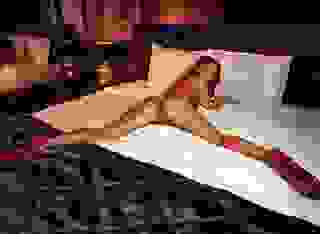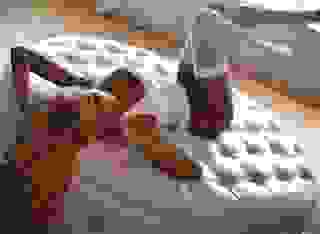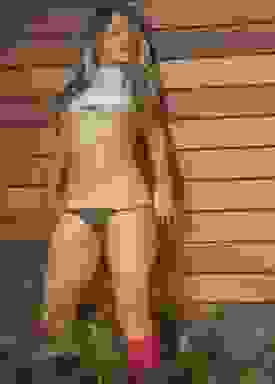All Comments on 'Spiced Lamb with Unleavened Bread'
by Cleardaynow
- 4 Comments
to me is the finest kind of story telling, richly textured with multiple layers each being exactly what and where it needs to be. The old man comes alive through his thoughts as he makes his trip, in a very few lines we see the politics of his home, his family, his area and the empire described in a way that is remarkably real.
"In my work, I have learnt when in a stranger's land
To avoid his women and his gods."
" I value Roman peace
But not their love of death"
"My son now is of Rome. Gauls, Jews and Lydians
Soon all are gone and only Rome prevails."
"I saw the shuddered rhythm of his breath. I listened
As he spoke softly with the thieves. I took trouble
Not to catch his eye. We owe respect to those
Who, though yet breathing, have now died."
This isn't clever word play or artful shading or dramatic pontification about the man on the cross - this is bold, declarative and beautiful story telling in the form of a poem
I don’t sympathize with the pro-Nazarene feelings expressed. My heart is more with those "two less" thieves that steal your stock. I also think that you over-stretch
Some historical facts.
On the other hand, your turn of phrase is beautiful and your painting of an era is very good to excellent.
Thanks for sharing it.
5-ed
Thank you very much for your comments – and score. Both greatly appreciated.
I am greatly curious as to where I was historically inaccurate. I just wrote it without further research. I was relieved just now to check on Wikipedia that the names Lydia and Smyrna were appropriate for Roman times. I certainly tried to make what the protagonist might have thought or heard realistic.
I wanted particularly to bring out that crucifixion was not some special one off event but absolutely commonplace. It was typical Roman efficiency and brutality – the maximum public pain and humiliation for the minimum effort. Draco without the regrets. I understand that they did on at least one occasion crucify thousands along roads but do not know if they were every 30 yards or if that was in the years preceding Jesus.
The poem was in many ways an experiment. I wanted to apply what I had learnt from some of the best poems on the site in applying descriptive detail – particularly from Oldbear (and thank you Oldbear for your comments as well). In particular I had read Destiny by Remec. I thought it and the devices used were excellent. However, the Web of the Norns is not now an integral part of our culture and thinking. Therefore the impact was purely intellectual & it needed something additional to give it depth and bite. I thought of commenting this & suggesting the crucifixion would be more powerful – but decided to write about it myself instead. The poem itself sort of took over then.
Cleardaynow,
Let me say again that this kind of discussion would be better to be in a thread cause it may be of interest to others.
Anyhow, I did not mean historical inaccuracies but as I said a bit of overstretching. Ancient Lydia and Ionia and the city of Smyrna were there then as they are today as geographical entities.
Regarding your poem, I am faced with two ways of reading it and I use them both:
1. As a poem expressing your feelings and your point of you.
2. As a piece of historical writing.
I like it very much as a poem.
As history (although, I like the painting), politics do come in.
I can only view it as a piece written from a Christian author's or Christian sympathizer's perspective, but here you have to consider your reader's perspective.
My perspective as a reader is that of a Roman (up to the point when Romans themselves become Christians, c. 300 AD) and then that of a non-Christian, which still makes me an old non-Christian Roman.
Now, as a citizen of the empire, I can only regard this event (if it did ever happened), as a routine state execution, like you do.
On this point I do not sympathize with the executed so much, and I cannot accept your remark that my empire is brutal or inhuman. It is in fact the less brutal and most human state that is available at that time. The politicians have the very heavy task to keep peace and harmony for all its diverse subjects (and they did keep it and made a brilliant work of it). This is an example of what I meant by "over-stretching" of history. It is a point where perhaps our political views differ.
But we don’t have to be all Christians in order to appreciate a good poem like yours.
My views on Christianity and why I am against it, if you are interested, are clearly outlined in the end of my poem "The Flavii And Their Era".
(I definitely think that we need a new thread for this.)














